Pjeter Smajl Dedaj died on August 6, 2015 at Orange Regional Medical Center, Middletown, New York. He was born in 1925 in Kapit of Nikaj, a remote hillside village located in the heart of the Northern Albanian Alps.
He escaped communist Albania in 1951 into Yugoslavia and emigrated to the United States of America by way of Italy and Belgium. Throughout his life he was dedicated to his homeland and its people. Pjeter was a member of the Pan-Albania Federation of America VATRA and enjoyed reading the newspaper Dielli in his upstate New York home.
Funeral services were held at Smith, Seaman & Quackenbush Funeral Home in Monroe, New York on Monday, August 10th. Albanian compatriots traveled many miles to pay their respects as friends and loved ones mourned with the grieving family. Representatives from VATRA expressed their condolences on behalf of the organization including, vice president Asllan Bushati, Dielli editor Dalip Greca and others. The next day, Pjeter’s remains were taken to Our Lady of Shkodra Catholic Church in Hartsdale, New York where Pastor Peter Popaj presided over the Requiem Mass. From there, the deceased was laid to rest at Gate of Heaven Cemetery in Valhalla, New York.
Pjeter’s grandson, Sebastian Kolaj, and nephew from Albania, Tonin Dedaj, wrote touching eulogies. Pjeter’s wife of 58 years, Mrika, dignified her husband with authentic highlander wails and lamentations—a customary ritual among Europe’s oldest natives. Dr. Gjon Buçaj spoke about Pjeter’s life at grave site.
EULOGY by Dr. Buçaj (recorded live):
The dash between the dates 1925-2015 represents the story of Pjeter Dedaj’s life, a story not uncommon for the Albanian Highlands. He was born among the rugged mountaintops where freedom has reigned supreme in the face of oppression; where honor, chivalry, hospitality and courage are ever constant. Reared in a family that exemplified these traits, he grew up like so many other sons and daughters of those mountains—free like eagles that soar to the very peaks where the heavens meet earth. Before his twentieth birthday, Pjeter had already proven that he was a worthy heir to the legends who had planted the trees of liberty and nurtured them with blood each time foreign enemies threaten country and family; this is how our ancient ethnic identity was preserved throughout the ages. Since antiquity, powerful invading armies have sought to occupy our land but our ancestors fought bravely under the old adage “greet death as another birth” and thus, freedom endured. Sadly, the invader of the 20th century, Slavic-communism, breached the homeland not with foreign armies, but with a cancerous ideology that was imported by our centuries old enemy, and unfortunately, many Albanians embraced it at which point it began to spread like a contagious disease. Pjeter Smajli and other young men joined a volunteer military unit known as “Dode Nikolla’s Batallion” on an expedition to the source in Albanian’s south, where communism first took root. In America, we got to know the few veterans who survived like Zef Sadria, Pjeter Ndue Beqiri and Jak Hasa. The communist plague took power all the same under the tutelage of our Serbian neighbors through a campaign of terror. Most Albanians who supported communism were deceived and knew not what they were doing, but a minority of them were well aware that they were benefiting our adversaries and inflicting immeasurable damage on the nation.
The communist regime, comprised of Albanians themselves, would turn out to be the most brutal, bloodthirsty, and destructive occupier our nation has had to withstand. It spread like an infection to the furthest corners of our homeland, and regrettably it even reached the Albanian Alps where eagles’ nests had been untouched until then. Communist ideology penetrated the Albanian family, the sacred nucleus of the nation; it changed and trampled on our unique customs and traditions in an effort to eradicate them completely; it was like a wild beast had been set loose on our values and way of life. Not only were intellectuals, professionals, military and the clergy targeted, but even national symbols of culture and heritage. Pjeter’s father, Smajl Qerimi, was publicly executed because he was a respected man of honor who represented the highest traditions of Albanian heritage; they hoped such an act might terrorize the people and bind them in fear. The dictatorship rose to power by terrorizing its people, and by terrorizing its people it remained in power.
Pjeter Dedaj had always maintained contact with the anticommunist resistance movement until his time came to join them in the mountains. He brought along his cousin Zef Sadria, and Kol Ademi to link up with Pal Bib Mirakaj’s team of freedom fighters that included Pashk Ademi and the like. Those two wore different military uniforms but never compromised their commitment to country or their principles. They could not have anticipated the wave of death and destruction that would have eventually swept them up too just as it had swallowed those who cooperated with the party like Beqir Ndou and many others.
Pjeter’s life was full of challenges and dangerous encounters where he demonstrated bravery and skill; when he went head to head against the odds, in Rrogam when his crew was pursued by defense forces; or another instance at the end of June 1951 on the way to the border with Pal Biba and others (the Balaj family was a part of that group, Zef Balaj is here and he remembers when they clashed with the ambush set by Sigurimi, Albanian Secret Police), and other skirmishes that I don’t recall but I have heard them from others because Pjeter didn’t talk much about his exploits.
Throughout the four plus years he lived in Yugoslavia he was in constant contact with Pal Biba and special operations paratroopers Gjon Gjinaj, Kol Çuni and others. By that time, Pashk Ademi had already become his brother-in-law after marrying Filja, Pjeter’s sister. From there, he risked his life by sneaking back into communist Albania to save others and to deliver messages for the paratroopers (the National Independent Block); Ndue Gjomarkaj often noted that Sigurimi had known about resistance activities through the Greek border and from Titograd as well as about the training camp in Germany, but they never knew about our messages that came across the Prushi Corridor (Qafa e Prushit), Pjeter’s route.
I met Pjeter for the first time in Gjakova in 1951 where I often saw him with his uncle, Ndue Qerimi and with friends from not only his region, but also from Malsia e Gjakoves, like Rrustem Bajrami, Halil Hamza, Musli Mulosmanaj who is here today, and others.
Nonetheless, now it’s starting to rain and Pjeter is eager to get on his way so he can reunite with his father and his mother who suffered many years in a concentration camp with his uncles. Just a few years ago Ndue Qerimi left this life and now he too awaits Pjeter, the nephew who transported his uncle’s remains to the homeland on a plot of land that Ndou himself had secured for his entire extended family for whom he cared dearly and without favorites.
Pjeter’s life is filled with fascinating events and anecdotes, but let me be brief: after four years in Kosova and almost a year in the infamous Gerova internment camp in Croatia, he made it to the free world. In a refugee camp in Italy, he married the love of his life, my sister Mrika. Whereas Pashku, who used to say “Pjeter Smajli is not only my brother-in-law, but also my friend”, immigrated to the US with his wife, Pjeter and Mrika went to Belgium and started a family. They were blessed with four beautiful children. Even there he was active in the struggle against the regime of tyranny as a member of the National Independent Block. Leka, Kol Bib Mirakaj’s son, recently uncovered old Sigurimi documents where it’s reported that Kol Biba’s command post in Belgium was at Pjeter Dedaj’s house. He was recruited to an elite group that was being trained in Germany by CIA experts in clandestine operations to be parachuted back into Albania; once again, willing to abandon his new life and family to die for the liberation of his country. His training was Top Secret, therefore, Mrika had to take care of the kids while covering for her husband. Even later on, when he came to the land of freedom, America, he continued his involvement with the national cause. At a National Independent Block meeting in New York in February 1992, he and Zef Perndocaj adamantly proposed that a delegation of Albanian Americans should be sent to Albania ahead of the March elections in order to encourage people to vote against the socialist party which had elected Ramiz Alia, Enver Hoxha’s protégé, a year prior.
In the US, he had to start his life all over again. Through hard work and dedication, like many of you, he built a future and his family achieved the “American Dream” until that fateful night on June 21, 1996. Both of his sons were visiting a childhood friend for his birthday at an infamous nightclub in Manhattan when a life-changing tragedy occurred. Their lives were threatened, two people were killed, both brothers were on the run from the police and the mob until arrested and sentenced harshly. This tragedy destroyed what the family had built, it shattered their American Dream. Pjeter’s aching heart reached some level of relief when his older son, Victor, was released just over a year ago. Sadly, he left this world longing to see Simon, but for those of us whom he left behind, we cannot lose hope because American justice is sometimes delayed, but it does not fail. Simon Dedaj will never see his father, but I am certain the day will come when, as a free man, he will lay down a wreath of flowers by his father’s tombstone with his own hands. He cannot do life in prison for a crime he did not commit!
These last 19 years have been a difficult burden to bear for Pjeter and Mrika but they’ve had the love and support of their two daughters along with their husbands and kids, Pashku, until he passed away, and Filja with her children, Zef Sadria’s family and the Perpepaj clan, as well as other friends and loved ones especially during their darkest days. In his last few days, he was never alone; by his bedside were Mrika and Filja, wife and sister, grandkids, family and friends. Therefore, take comfort knowing that you surrounded him in love and supported each other just like he would have wanted and rightfully deserved. He is honored by Tonin’s heartfelt words for his uncle in a piece that is circulating on the internet and by Sebastian’s emotional eulogy for his grandfather.
He lived his life with honor to the very end. You, friends and family who knew him and respected him, will remember him with affection and admiration, as an honorable man, noble, courageous and generous— loyal to his friends and compassionate to all. We are grateful to our pastor, Fr. Peter Popaj, who has eased our pain with religious and patriotic words while sending off God’s faithful servant with prayers and blessings. God Bless you.
To the grieving family, as it is said in the Highlands, “may you experience joy after this day.”
May God’s Perpetual Light shine upon him.
August 11, 2015 (Transcribed and translated by Leka Buçaj)
Marrë nga Dielli

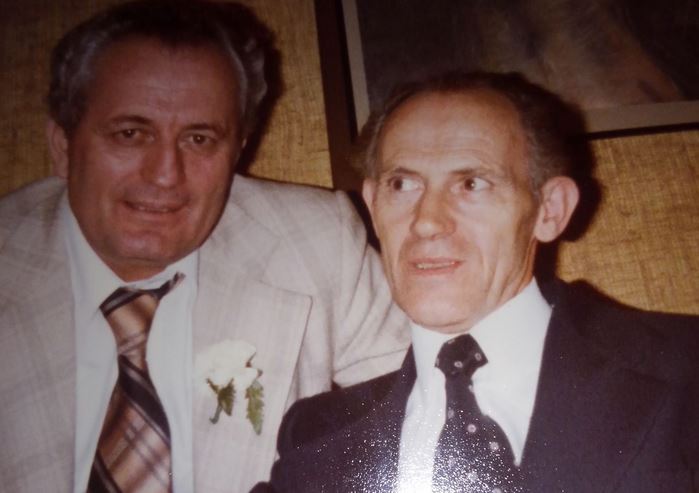








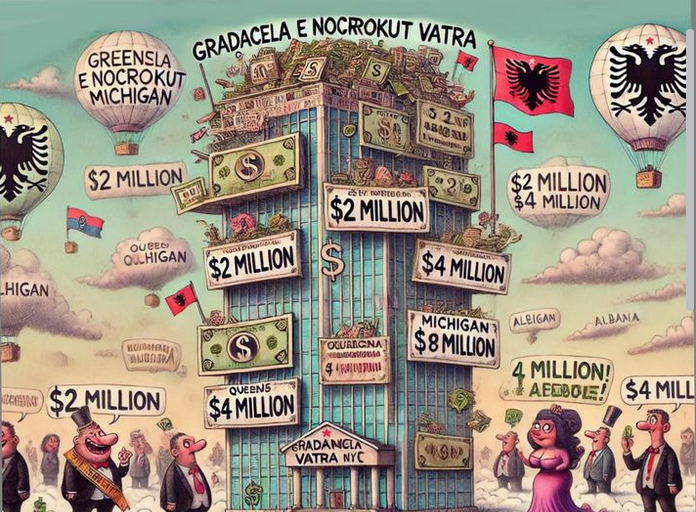
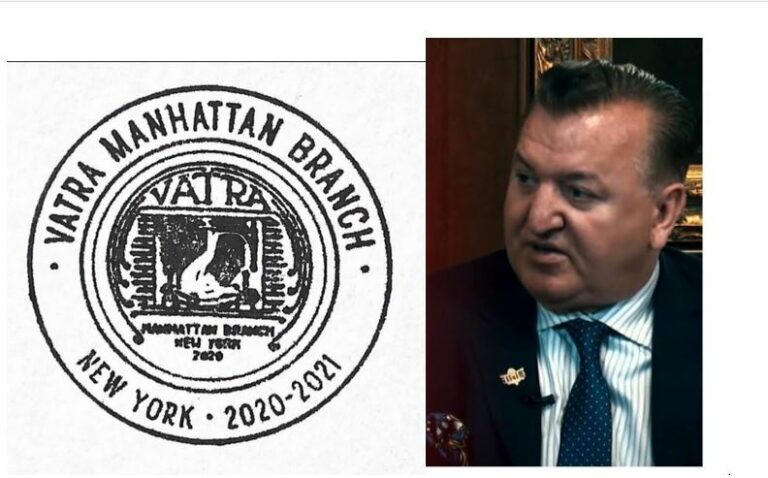
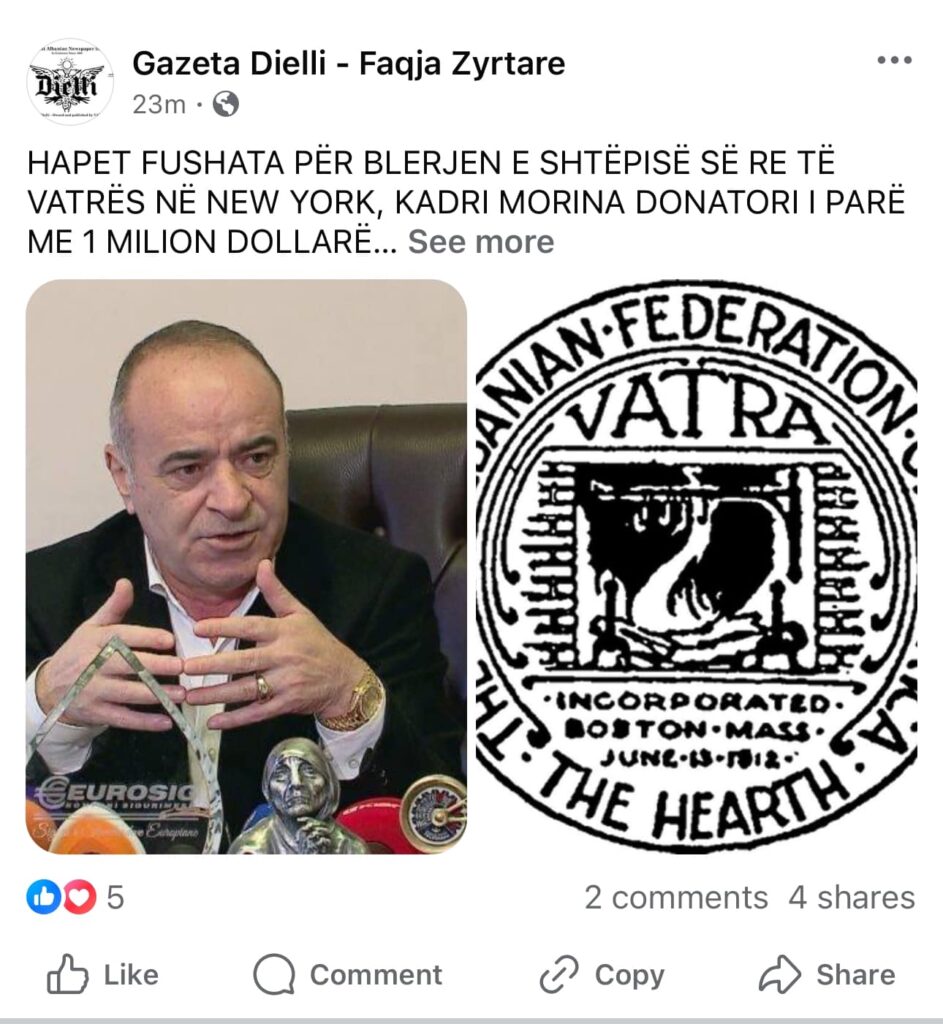





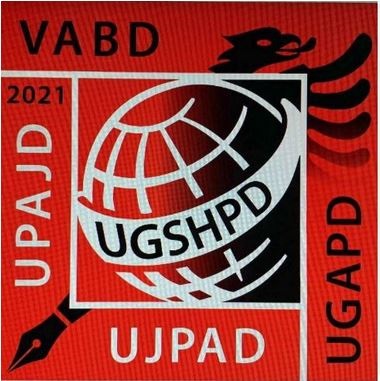













Komentet